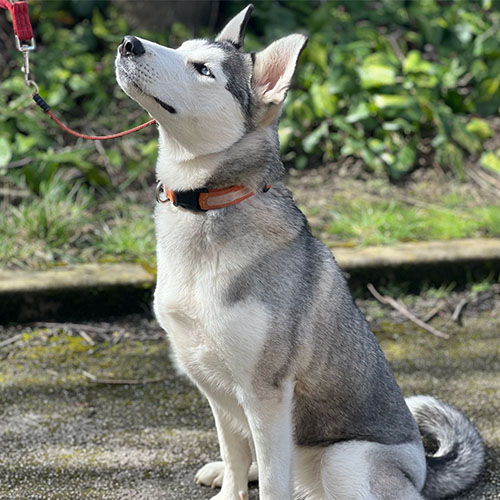


THE HOUND HUB
Dealing with asset protection in your dog
Help & Advice
9 April 2024
Guarding assets, such as food, toys, or territory, can be problematic behaviour in dogs due to several reasons that affect both the dog and its owners.
Firstly, asset guarding can lead to aggression towards humans or other animals. Dogs may perceive attempts to approach or take away their guarded items as threats to their possessions or territory, triggering defensive or aggressive responses. This can result in growling, snapping, or biting, posing a risk of injury or harm to those around the dog. Aggressive guarding behaviour can escalate quickly and unpredictably, leading to conflicts, injuries, or legal liabilities for the owner.
Moreover, asset guarding can strain relationships between the dog and its owners or other family members. Dogs that guard resources may become possessive or territorial, exhibiting undesirable behaviours such as growling, lunging, or even attacking when approached near their guarded items. This can create tension, fear, or mistrust within the household, undermining the bond between the dog and its owners and compromising the overall harmony and well-being of the family.
Furthermore, asset guarding can interfere with everyday interactions and activities involving the dog. Dogs that guard food may become aggressive during mealtimes, making it challenging for owners to approach or handle their dog's food bowl safely. Similarly, dogs that guard toys or territory may exhibit aggression towards visitors, delivery personnel, or other animals that enter their perceived territory, leading to disruptions, conflicts, or social isolation for the dog and its owners.
Additionally, asset guarding can limit the dog's opportunities for socialisation and positive experiences with others. Dogs that exhibit guarding behaviour may struggle to interact calmly or appropriately with strangers, children, or other animals, leading to missed opportunities for socialization, enrichment, and engagement. This can hinder the dog's development of essential social skills, confidence, and resilience, affecting their overall quality of life and well-being.
Moreover, asset guarding can exacerbate stress and anxiety in dogs, leading to health problems or behavioural issues over time. Dogs that guard resources may experience chronic stress or fear, leading to heightened arousal, aggression, or anxiety-related behaviours. This can negatively impact the dog's physical health, emotional well-being, and overall happiness, diminishing their quality of life and potentially leading to long-term behavioural problems or health complications.
In conclusion, asset guarding behaviour in dogs is problematic due to its potential for aggression, strain on relationships, interference with everyday interactions, limitations on socialisation opportunities, and negative impact on the dog's well-being. Addressing asset guarding requires a multifaceted approach that encompasses training, behaviour modification, management, and ongoing support from professional trainers or behaviourists. By addressing the root causes of asset guarding and implementing effective strategies to modify and manage the behaviour, owners can promote a safer, more harmonious, and fulfilling relationship with their dog while ensuring the safety and well-being of all involved.

For more information on how we can help, please contact us using the form below:
For more information on how we can help, please contact us using the form below:
